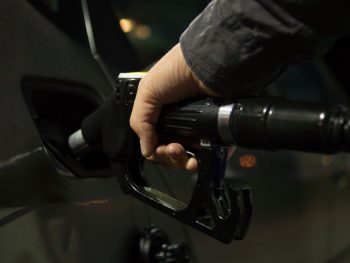Biggest-ever fuel price increases in over 20 years
Pump prices rose more in March than in any previous month on record, despite the 5p fuel duty cut announced in the Spring Statement.

Since the 5p fuel duty cut was announced, just 3.7p has come off the price of petrol and 2.6p off diesel
New data from the RAC shows the average price of diesel rocketed by 22.06p a litre last month, peaking at 179.9p on 23 March and ending the month at 177.29p.
The increase is three times the size of that recorded in May 2008, the previous worst month for diesel price rises, when the cost of a litre went up by 8.43p.
Petrol prices also surged 11.62p over the month, hitting a new record-high price of 167.3p on Tuesday 22 March and ending the month at 163.28p per litre. The 11.62p rise was the largest-ever increase the RAC has recorded in a single month – to put it in perspective, the previous biggest monthly increase was in October 2021 when petrol prices rose by 7.43p a litre.
The hike in forecourt prices was the result of rising wholesale fuel costs, themselves caused by a further hike in the cost of oil following the start of the Russian invasion of Ukraine. A barrel cost $112.99 at the start of March before peaking at a 14-year high of $137.72 on 8 March, two weeks after the war began. While the price fell to $109.98 by the end of the month, rises earlier in the month had already pushed up wholesale fuel prices, causing drivers to pay even more to fill up.
This also helps explain why the Chancellor’s 5p fuel duty cut hasn’t made a meaningful difference at the pumps. The price cut applies to the wholesale cost of fuel and unfortunately took place on a day when the oil price jumped by $6 a barrel, leading to the cost that retailers pay to buy fuel going up. Without the fuel duty cut, drivers would have been paying even more for their fuel then they had been.
Since the Chancellor’s address to the Commons, average petrol and diesel prices have so far fallen by 3.73p and 2.61p respectively.
RAC fuel spokesman Simon Williams said: “To describe the current situation facing drivers at the forecourt as ‘bleak’ is something of an understatement.
“Without question, these figures show in the starkest possible terms just how much fuel prices are contributing to the cost-of-living crisis which will be affecting households up and down the country. We know that so many drivers depend on their vehicles – for instance, because of a lack of feasible alternatives – so fuel prices must be starting to have an enormously detrimental effect on people’s finances, especially those on lower incomes.”
The RAC added that drivers have little recourse to escape the high cost of filling up.
“Seeking out the cheapest petrol stations and driving as efficiently as possible are the best ways of making every pound spent on fuel go as far as possible,” added Williams.












